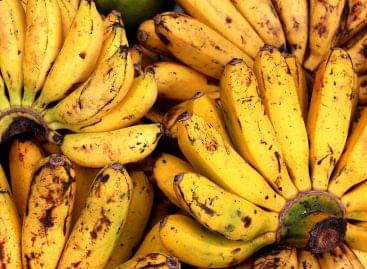The destructive banana disease threatens again: the elimination of monocultures may be the key to the solution
Global banana production was once again in serious danger, as the fusarium wilt, which had already caused significant damage in the 1950s and 1960s, reared its head again. Scientists warn that the pathogen can even wipe out the entire supply of fruit, but a better understanding of the mechanism of the disease and the eradication of monocultures may give hope of stopping the infection.
In the past, fusarium wilt caused serious problems in the cultivation of the Gros Michel banana variety, which eventually disappeared from the market altogether. Today, however, the Cavendish banana, the dominant variety in the global banana trade, is under threat. According to studies conducted by researchers at the University of Massachusetts Amherst, the genetic structure of the current pathogen differs from the type that was devastating in previous decades. The discoveries were reported in a study published in the journal Nature Microbiology.
Researchers have shown that the current version of the disease destroys plants with nitrogen monoxide, which is particularly dangerous because banana growers are forced to leave contaminated areas in case of infection. However, knocking out nitric oxide genes may offer hope for stopping the spread of fusarium wilt.
Related news
Hungarian banana history: from rarity to staple food
🎧 Hallgasd a cikket: Lejátszás Szünet Folytatás Leállítás Nyelv: Auto…
Read more >And you just pack it out – Video of the day
🎧 Hallgasd a cikket: Lejátszás Szünet Folytatás Leállítás Nyelv: Auto…
Read more >








